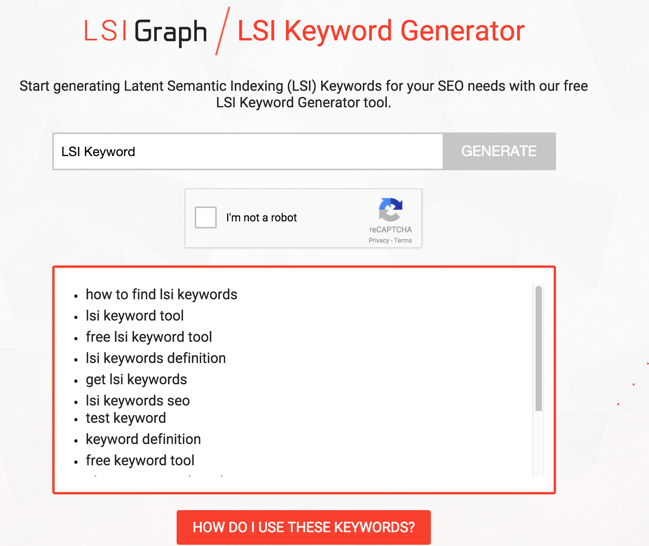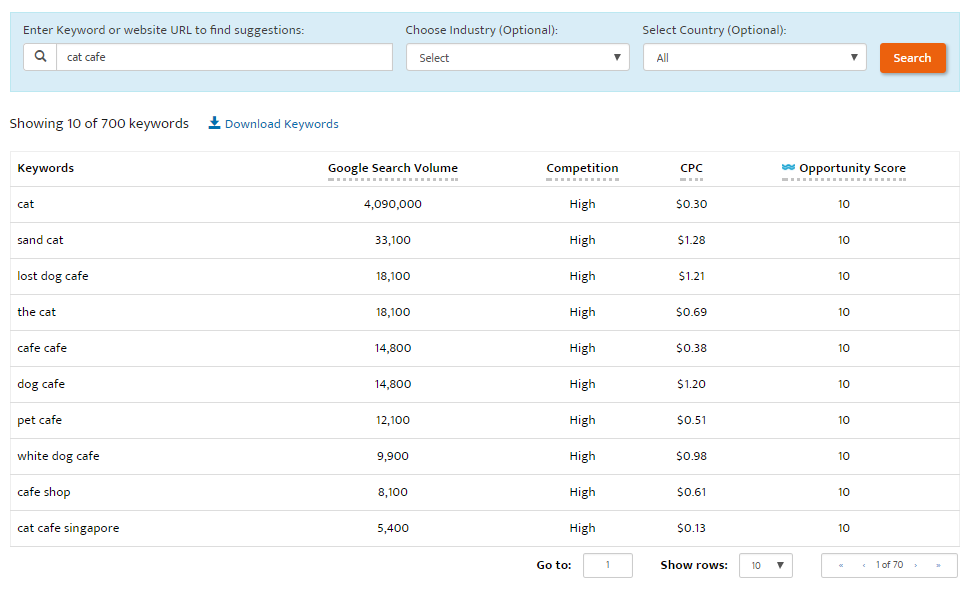Do you want to induce more traffic on your website?
Of course yes, right?
You might have seen a lot of competitors on the Search Engine. Millions of contents are published every day. This is the reason why the competition is getting tougher.
Many websites give priority just to the focus keywords to reach on top of the Search Engine. But is that sufficient? Will only the focus keyword help you rank on the top?
Obviously not! This is your biggest illusion.
Are you familiar with LSI Keywords? If no, let us clear it out everything for you. If yes, you will get to know more about it.
To get ranked, giving priority just to the focus keyword is not sufficient. Let us tell you a secret! LSI Keywords are also very important for SEO point-of-view. It will help you rank on the top rapidly.
We will provide you all the guidelines on LSI Keywords and Why They Matter in SEO?
Have some patience, and read all the guidelines below.

Let’s get started.
Are you curious to know, what techniques do SEO professionals use to improve their rank on Search Engine? Let us tell you an interesting fact. One of the techniques they use is the “LSI keyword” arrangement.
Search Engine uses LSI (Latent Semantic Indexing) to determine the relationship between terms and concepts in content, based on search patterns.
It helps the Search Engine to determine how the main keyword is related to the keyword that you are targeting.
What are LSI Keywords?
LSI stands for Latent Semantic Indexing. LSI keywords are related to the main keyword you are targeting.
Using these keywords on your website will give you a very positive result.
They are conceptually related terms that are closely tied to your target keyword.
It allows the Search Engines to understand your content along with your search intent and its relationship to a specific keyword.
Don’t be confused, they are not synonyms. They are only related to the main keyword.
Why is the LSI Keyword Important?
In the early days of SEO, the only focus keyword mattered the most. Google and other Search Engines used to figure out the page topics based on the repetition of words on a page.
Because of that, one could easily manipulate a page’s ranking on the Search Engine with keyword stuffing.
Sites could rank on a large variety of keywords by simply cluttering them on a page, even if the keywords were unrelated.
But now, Search Engines have become smart, They frequently change their search algorithm.
But working on LSI keywords will never disappoint you. The use of LSI keywords aware Search Engine that the content is at a deep level.
According to the recent research Paper from Google states that they use “ words frequently occurring together” to understand the content main’s topic.
Why Do They Matter for Seo?
In the Seo context, the LSI keywords are those keywords that we should be using in our content to help the search engines understand our article better.
As we know, when content creators write content they mainly focus on the target keyword (that may also be a long-tail keyword).
However, without enough LSI keywords, their article does not look natural.
LSI keywords make it easy for a search engine to figure out how natural a piece of content is.
Maybe you are thinking about How to Find LSI Keywords?
Here we have covered 5 best practices to find LSI keywords.
How to Find LSI Keywords?
5 Best Practices to generate LSI Keywords
1. Don’t focus only on Synonyms
2. Google Autocomplete
3. LSI Graph
4. Google Keyword Planner
5. Use Alexa’s Keyword Difficulty Tool
Don’t focus only on Synonyms
You have to find related words but not the synonyms. This mindset will help you to find the related keyword for your article.
Google Autocomplete
Google Autocomplete is one of the fastest and easiest ways to identify related terms to use in your content.
To find related keywords in google autocomplete, firstly, you have to go to Google and search for keywords that you have focused on. Then, you will see the bold words that it suggested while typing the main keyword. These bold words are LSI keywords.

In this way, you can easily generate LSI keywords.
You can also search in Keyword Tool and Ubersuggest. Both of these tools will give you a lot of related keywords that you are looking for.
LSI Graph
LSI Graph is a free LSI keyword tool that is designed to help you find many related terms to use in your content.
Visit the website and type in a keyword that you want to rank for and get a list of related keywords that you can include in your content.

This is a free SEO tool that helps you find dozens of related terms.
Google Keyword Planner
Google keyword planner is also one of the best ways to generate LSI keywords
It suggests hundreds of keywords to use and also lists common search terms. You can definitely use this suggestion as your own keyword generator.

Enter your target keyword and see related SEO keywords that have high search levels and low competition.
Use Alexa’s Keyword Difficulty Tool
Alexa also has a tool that helps you to identify related terms to support your keyword strategy. You just have to enter your target term into the Keyword Difficulty Tool and then it will produce a report of similar phrases and words.

You have to consider the competition scores to find terms that will support your keyword strategy.
Final Thoughts
Nowadays, Google focuses not only on the main keyword but also on the LSI keywords.
If you also want the Search Engine to recognize your content, then you must have to focus on the related term of your focus keyword.

You must have to include the LSI keywords on your content so that Search Engines can easily recognize your content and rank it on the top. Do follow all the guidelines that we have mentioned above and generate LSI keywords that will definitely help you.



